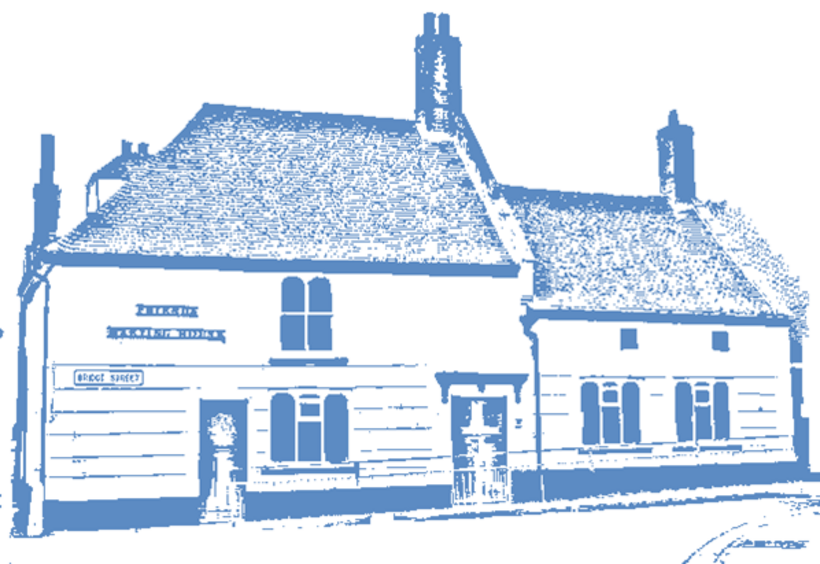Managing listed buildings – help!
Our area meeting has ten meeting houses, including seven listed buildings. Most of them are in town or city centres and have 20–30 regular attenders. Almost all of the meeting houses generate income from room hire and act as community hubs. Between 20–80 groups use each building.

Each of the seven listed buildings needs care and attention to keep it in working order. Two need extensive modernisation. Building work on listed buildings is difficult because of the need for specialist builders.
Looking after the buildings and complying with health and safety, and conservation regulations requires time and specialist skills which our local meetings do not have.
Initially we asked Churches Conservation Trust (CCT) to run a one day workshop for area meeting property clerks. It taught us that a key to building maintenance was preventing water damage. CCT also helped us create a manual for looking after our meeting houses and ensuring that each had annual health and safety checks.
However it soon became clear that most meetings lacked the knowledge and capacity to carry out these tasks.
We asked CCT for more help.
Together we came up with a scheme whereby CCT would support meetings to look after their buildings. We excluded the modern meeting house from the scheme because they're much less risky than the others and we don't need the professional support.
CCT offers support by:
- producing reports pointing out potential problems such as blocked drains, rot and wood structures at risk of collapsing
- finding and commission builders for listed buildings to carry out regular preventative conservation, initiate repairs when needed and support local meetings in carrying out health and safety checks
- supporting meetings with regular checks so that preventative measures can be taken to stop problems from getting worse
- offering professional advice, so we only need to use structural engineers and architects if we need help with major issues
Of course we had to get meetings to agree to this, not least because of the financial outlay (roughly £1,500 per building, per year). So trustees attended business meetings with each local meeting. We agreed that the cost of the scheme would be split between the local and area meetings. This is manageable for the local meetings because most have income from lettings.
We also had to balance the responsibilities of area meeting trustees with local meeting Friends for their own building and form sound working agreements for the future. This was hard but fruitful.
Most local Friends have been pleased to receive personalised, sympathetic and supportive care.
We've just completed the trial period of working with CCT. In the first year they exposed a lot of issues and neglect as well as legal non-compliance. This isn't surprising, since the buildings were only checked every five years before. Putting these legacy issues right has been expensive but necessary. It should prevent huge future expense.
Because each building is being checked more regularly and with professional support we are confident that our buildings are now legally compliant, safe and in good condition. Now we only use structural engineers and architects if we need advice on major issues.
We're also able to focus on improvements, in particular, accessibility.
It's brought the buildings to life, making them feel more cared for. We're now more able to see them as living witness.
Because we have professional advice there's less pressure on trustees and less distraction for Friends. It's be expensive, but it's worth it.
This year, the process has been demanding and thrown up a lot of maintenance problems. But as it becomes more routine, meetings will be able to think through their place in the community and their ministry in the local towns rather than having to focus all of their energy on maintaining the buildings.
Our next phase is a wide discussion in November to ensure that our meetings have a sense of ministry in their community. With this property support in place, we can focus on what we're supposed to be doing: being a Quaker community with and within our local communities.
Churches Conservation Trust was set up by the Church of England and the Department for Digital, Culture, Media and Sport (DCMS) to support community groups of volunteers caring for historic churches which can't be looked after by the Diocese and are listed. It provides technical support and contractors, and has helped turn city centre churches into concert venues and rural churches into family camping venues. It has a lot of experience in managing historic buildings. Visit the Churches Conservation Trust website to find out more.
The average cost is around £1,500 per building, per year. CCT also charges 10% of the cost of a piece of work done by a contractor.
If area meeting clerks would like to discuss this work with me I can be contacted on email at ggawlinski@mac.com or by phone on 07768682164.